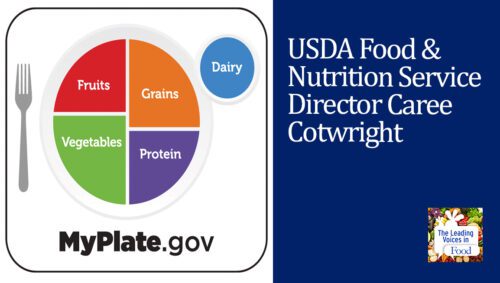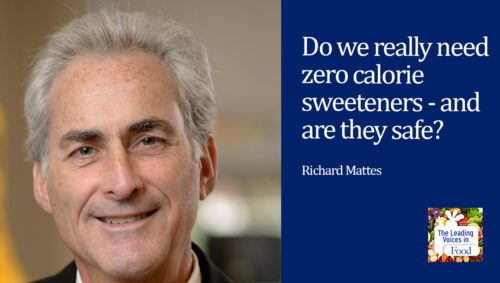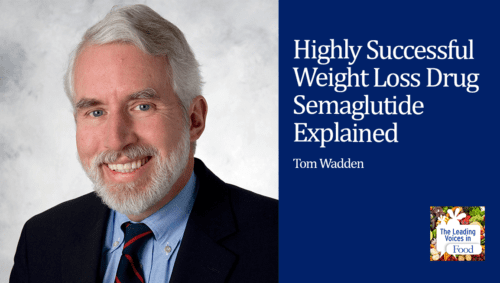The Leading Voices in Food
E41: Combatting Weight Bias
In an earlier podcast with Dr. Rebecca Puhl, she described the nature extent and impact of weight bias on the lives of individuals was described and clear and very moving ways. Dr. Puhl, professor of Human Development and Family Studies at the University of Connecticut, and deputy director of the Rudd Center for Food Policy and Obesity, is a leading researcher and an agent for change on this important topic. She’s kindly agreed to speak with us on this podcast on what might be done to prevent weight stigma when it does occur and how to reduce its impact.
Subscribe: Apple Podcasts | TuneIN | Google Podcasts | SoundCloud | PocketCasts | Radio Public
Tags: Childhood Obesity | Obesity | Weight Stigma |

Dr. Rebecca Puhl, Professor of Human Development and Family Studies at the University of Connecticut and the Deputy Director of the Rudd Center for Food Policy and Obesity. Dr. Puhl is a leading voice in both research and in policy efforts aimed at reducing weight-based discrimination, stigma, and victimization. She has conducted research on weight stigma for over 16 years and has numerous publications on related topics. She has testified in legislative hearings on weight discrimination and routinely provides expertise on strategies to reduce weight bias to national and international health organizations. Dr. Puhl has received awards for her work from national organizations such as the National Eating Disorders Coalition, the Obesity Action Coalition, and most recently The Obesity Society.
Interview Summary
Rebecca, you have done very impressive work with the media on how people with obesity are portrayed. Can you remind us again how quickly how weight is portrayed in the media and what you have done to address this?
The media is a powerful and pervasive source of weight bias in that people who have larger body sizes are really depicted in negative ways in media that reinforce societal stereotypes like lazy or sloppy or a target of ridicule and this happens in many forms of media. Not just entertaining media but also the news media. And one of the things that struck us early on when we began studying this issue is just how many news reports about obesity are accompanied by stigmatizing images and videos of people with obesity. And we did some research where we looked at hundreds of news reports on obesity across lots of different national news outlets. And we found that essentially over two thirds of the images that accompany these reports were very stigmatizing. And so to try to help change this we created a comprehensive gallery of images and videos that essentially portray children and adults who have obesity in ways that are respectful and positive and non-stigmatizing.
We hired professional photographers to do this and we essentially created the first image bank of its kind, which provides these images and videos for free to the media, and also to help professionals or researchers or educators. And the idea here is to try to provide an easy source of images that can help challenge weight bias in the media. And we had a lot of success with this. Our images have appeared in national and even international news outlets. And what I have been really delighted to see over the years, especially recently is other organizations are now following suit. So there are now image banks available in Canada and through the World Obesity Federation. And from my perspective, these types of efforts are really important to try to help shift media portrayals of obesity. But it doesn’t really stop there.
We try to speak out against the weight bias in the media when we see examples of it to use those as teachable moments of why it’s, it’s damaging and harmful. And, you know, I’ll be honest, it can be challenging to stay on top of this, especially with weight bias that is now emerging on social media. But it’s definitely been often that stick to see more people speaking out against stigma and shaming and calling out the harms of weight stigma when this occurs. And I don’t think I could have said that five or 10 years ago. But certainly the voices against the weight stigma and the public awareness of it I think are increasing.
In an earlier podcast you mentioned the pretty serious impact of lead by us in medical care settings. And I know you when others have worked on addressing this issue, what’s been done in this area?
So I think that engaging medical professionals in efforts to combat weight bias is really important. And you know, part of the reason for that is that we know that weight bias is a big problem in healthcare and that we need to really educate providers about weight bias and the harmful impact that it has on our patients. You know, when we think about medical training, you know, topics of obesity and nutrition don’t really get curriculum coverage in the way that the need to. And essentially there’s no education about weight stigma. And so we’ve developed a number of educational resources for health care providers to try to help them become aware of weight bias and how it impacts their patients and what they can do about this in the clinical practice. And another reason I think we need to really engage healthcare providers in this way is that they can be very important allies and sources of support to patients who have obesity, who may be experiencing stigma.
This is especially true for children who are vulnerable to teasing and victimization because of their weight, not only at school from their peers, but at home from family members. And for kids who experienced weight stigma in both of those settings, health providers, pediatric providers, may be one of the few allies who can really identify this issue and support them. So as an example of a way to kind of address this in the medical community, I coauthored a policy statement with Steven Cotton and other colleagues that was published by the American Academy of Pediatrics in 2017. It essentially aims to increase awareness in the medical community about the harmful effects of weight stigma on children. And it provides guidance for ways that healthcare professionals can address this issue. And what I think was important about this is that not only were there clinical practice recommendations in this policy statement for ways that pediatric providers can reduce weight stigma, but we also made a number of broader advocacy related recommendations of ways that providers can try to help reduce a broader societal weight stigma in children.
So for example, we recommended that health professionals work with schools to try to ensure that anti-bullying policies protect students when it to weight based bullying. We called upon health professionals to advocate for training for medical trainees and health professionals. That they’re educated about weight stigma and its harmful effects. And to really advocate for responsible portrayals of people with obesity in the media. And so I think efforts like this in the medical field are really important because we need to bring attention to the fact that stigma really does pose a barrier to effective clinical care and treatment. And to find ways to better support patients regardless of their body size.
Rebecca, you and your colleagues at the Rudd Center developed a series of videotapes to show the impact of weight bias. Could you explain what these videos they just portray?
Sure. As part of our efforts at the Rudd Center to reduce weight stigma, we created three educational videos and these have different target audiences that include health care providers, parents and teachers, and students. And we worked on these videos with an Emmy-award-winning writer, Heather Hale. And we also involved Emme in this project, who is considered to be kind of the world’s first plus size model. And we created these films as a way to bring attention to the issue of weight stigma and how it impacts people and what can be done to address this problem. And our videos have been very successful. Particularly our video targeting health providers, which has been disseminated across the country and actually outside of the US, and is used frequently in medical facilities as part of a sensitivity training. What I’ve been delighted to see is that there’s also been several studies testing the videos and what they have found is that these are effective interventions in improving attitudes and reducing weight bias. I will also mention that we worked with HBO on their Weight of the Nation Series. We also created a short video with HBO called the human cost of obesity. And that really kind of shows the personal side of weight stigma. And it has also been tested in research and found to improve attitude. So I think that these kinds of tools, these brief videos, which are really less than 20 minutes each, can be really useful ways to increase awareness of weight stigma and offer some strategies to be part of a solution to address this problem.
You know the Weight of the Nation was a major enterprise by HBO to address obesity issues in the United States. And it was a sign of changing times to have included weight biases among the issues in that documentary. And I thought some of the personal stories that came out in those documentaries are really very powerful and I give you a lot of the credit for making that happen. So good work. So let me ask you on another level about the policy level about what might be done. And I know there has been some discussion about dealing with weight discrimination through antidiscrimination laws. Where does that stand?
So you know, from my perspective, policy is really one of the most important strategies we have to address the problem of weight stigma on a broad scale. The kinds of policies and legislation that are relevant here are different for adults than for children. So for adults, you’re right that this involves passing antidiscrimination laws and policies that essentially make it illegal to discriminate against people on the basis of body weight. And currently there are very few options for legal recourse in the United States if someone has faced weight discrimination. Right now Michigan is the only state that has a law prohibiting weight discrimination. This was a law that was passed as part of their state civil rights statute back in the 1970s. There’s also now half a dozen cities across the country that have passed local jurisdictions to prohibit discrimination. But essentially there are very few options available.
And so we’ve been conducting national studies really for the past eight years or so, looking at public support for different types of laws that could address this. And what we have found is substantial public support for laws that would make it illegal for employers to discriminate against people because of their weight in the workplace. And we see as much as 80% of people in favor of this. And we also see a similarly high levels of support for adding body weight as a protected characteristic in existing civil rights laws. And essentially this is what Michigan has and we’re starting to see that some states want to do the same. For some time Massachusetts has been trying to pass a state law to add weight as a protected category in their state civil rights law. And they are making progress. And I think that we will likely see more states begin these types of efforts as well.
So that is somewhat promising. When it comes to children though we were talking about weight-based bullying, which is a huge problem. And it’s often something that gets ignored at the policy level, whether it’s school-based anti-bullying policies or state anti-bullying laws. So right now almost every school district across the country has to have an anti-bullying policy. But these policies vary considerably in terms of how comprehensive they are. So some policies will list characteristics that place kid that risk for bullying, like sexual orientation or race and ethnicity, whereas others don’t. And what we know is that schools that have more comprehensive policies that can enumerate these characteristics tend to have lower rates of bullying and better student safety, and more teacher intervention. So what’s really concerning is that body weight is essentially a glaring omission in most of these policies.
And so there is a clear need to strengthen these policies. And the same goes for anti-bullying laws. So every state in the country has an anti-bullying law, but they really vary from state to in terms of how strong they are. And right now only a couple of state laws even mentioned body weight. So we’ve done a lot of research on these issues and looking at things like parental support for strengthening policies and laws to better protect kids from weight-based bullying. And again, we see really high levels of support from parents, often 80% or higher who want to see body weight added into the language of school based policies in anti-bullying laws. So I think what this means is that we need to not only work with policymakers and school administrators to make this happen. But I think we also need to educate parents about this issue because when it comes to policy, parents have an influential voice in motivating political will for action on things that affect children.
But many parents don’t really know if their child’s school has an anti-bullying policy. And if it does, whether it even addresses weight at all. So I think we can encourage parents to really talk to their schools, to learn more and to ask and request that body weight be included. Because we really needed to treat weight-based bullying as a legitimate form of harassment and bullying. And you know, at the Rudd Center we’ve provided examples of model policies and what they look like, and ways that parents can talk to their child or their child’s school about making improvements
So how can people learn more about your work and about the issue of weight stigma overall?
So I would encourage folks to go to our website, which is www.uconnruddcenter.org. We have a whole section of our website devoted to weight bias and that includes not only our research but lots of resources that we created coming out of our studies that are available for policymakers, health providers, and parents and teens. That’s a great place to start to get more information.







